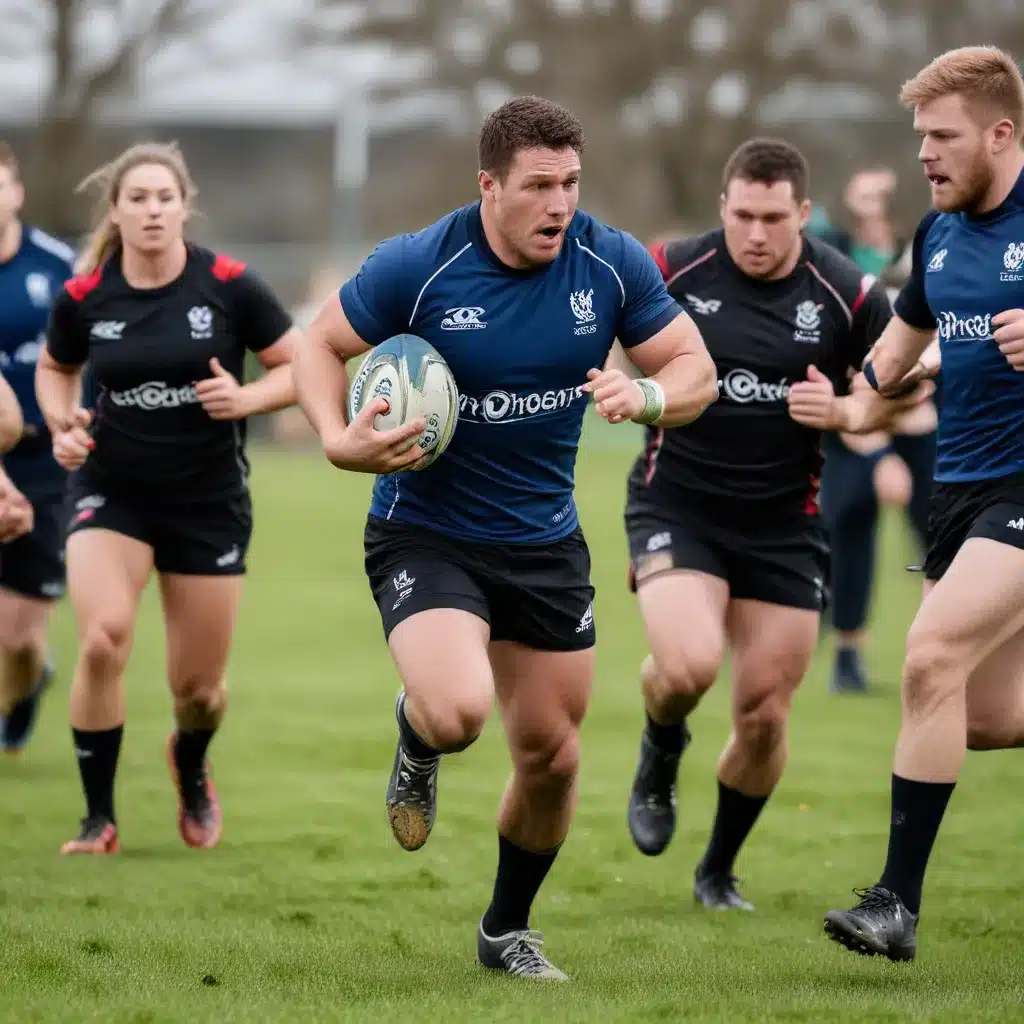
Rugby: A Holistic Approach to Fitness and Well-being
As a seasoned rugby professional, I’ve witnessed firsthand the incredible power of this sport to transform lives. Rugby is not just a game; it’s a way of life that embodies the true essence of health and wellness. From the moment you step onto the pitch, you’re embracing a holistic approach to fitness that transcends the physical realm.
Physical Attributes of Rugby
At the heart of rugby lies an unparalleled cardiovascular challenge. The relentless sprints, tackles, and scrums demand a level of cardiovascular fitness that few other sports can match. As you push your body to its limits, you’re not only building endurance but also fortifying your heart and lungs, ensuring a lifetime of robust physical health.
Muscular strength is another hallmark of rugby. The constant grappling, lifting, and powering through the opposition requires a level of raw strength that can only be achieved through dedicated training. This focus on building muscle not only enhances your performance on the field but also contributes to overall bone density and injury prevention.
Endurance is the glue that holds it all together. Rugby players must possess the ability to sustain high-intensity efforts for extended periods, pushing their bodies to the brink. This endurance training translates to numerous health benefits, from improved metabolic function to better stress management.
Rugby’s Impact on Mental Health
The physical demands of rugby are only one piece of the puzzle. This sport also has a profound impact on mental well-being. The camaraderie and team dynamic foster a sense of belonging that is crucial for overall happiness and contentment.
The thrill of competition and the pursuit of shared goals can have a remarkable effect on mood and stress levels. The adrenaline rush and the feeling of accomplishment that come with each game or training session can be a powerful antidote to the stresses of daily life.
Moreover, the mental resilience required to persevere through the challenges of rugby can translate to improved cognitive function and decision-making skills. The ability to stay focused, adapt to changing situations, and maintain composure under pressure are invaluable traits that extend far beyond the rugby pitch.
Injury Prevention and Management in Rugby
While rugby’s physical demands are undeniable, the sport also places a strong emphasis on injury prevention and management. Proper technique and conditioning are paramount in ensuring the longevity and safety of players.
Addressing Common Rugby Injuries
Concussions are a significant concern in rugby, and players must be vigilant in recognizing and managing head injuries. Strict protocols, including thorough medical assessments and gradual return-to-play guidelines, are essential in safeguarding the well-being of athletes.
Joint sprains, particularly in the ankles and knees, are also common rugby injuries. Targeted strength training and flexibility exercises can help strengthen the stabilizing muscles and ligaments, reducing the risk of such occurrences.
Muscle strains, especially in the hamstrings and groin, are another common issue. A comprehensive warm-up routine, coupled with a focus on mobility and recovery, can help players avoid these debilitating setbacks.
The Social Benefits of Rugby
While the physical and mental aspects of rugby are undoubtedly compelling, the social benefits of the sport are equally profound. Rugby is not just a game; it’s a community that fosters lifelong connections and a sense of belonging.
The camaraderie that develops within a rugby team is unparalleled. Players form deep bonds through the shared experience of training, competing, and overcoming challenges together. These relationships extend beyond the pitch, creating a network of support and lifelong friendships.
Rugby also encourages community involvement, as teams often participate in local events and initiatives. This sense of civic engagement not only strengthens the sport’s presence but also contributes to the overall well-being of the community.
Embracing Rugby as a Lifestyle: Fitness for Life
As a rugby professional, I’ve seen countless individuals transform their lives through this sport. The key to unlocking the full potential of rugby’s health and wellness benefits lies in embracing it as a lifestyle, not just a passing hobby.
Sustainable Training Routines
Maintaining a consistent training regimen is essential for reaping the long-term rewards of rugby. Developing well-rounded programs that incorporate strength, endurance, and mobility exercises can help players sustain their fitness levels and minimize the risk of injuries.
Proper nutrition and recovery strategies are also crucial. Fueling the body with the right nutrients and allowing for adequate rest and regeneration can enhance performance, speed up recovery, and promote overall health.
Transitioning to Recreational Rugby
As players move beyond their competitive careers, the transition to recreational rugby can be an equally rewarding and fulfilling journey. Adapting training methods to accommodate the changing needs of older players, with a focus on injury prevention and overall well-being, can ensure that the love for the sport continues to thrive.
Embracing rugby as a lifelong pursuit is the true essence of fitness for life. By nurturing a deep appreciation for the sport’s physical, mental, and social benefits, individuals can cultivate a sustainable path to health and wellness that extends far beyond the playing field.
At Aberdeenshire RFC, we are committed to fostering this holistic approach to rugby and empowering our community to embrace the sport as a means of achieving lifelong fitness and well-being. Whether you’re a seasoned player or just starting your rugby journey, I encourage you to dive in and immerse yourself in the transformative power of this incredible sport.
